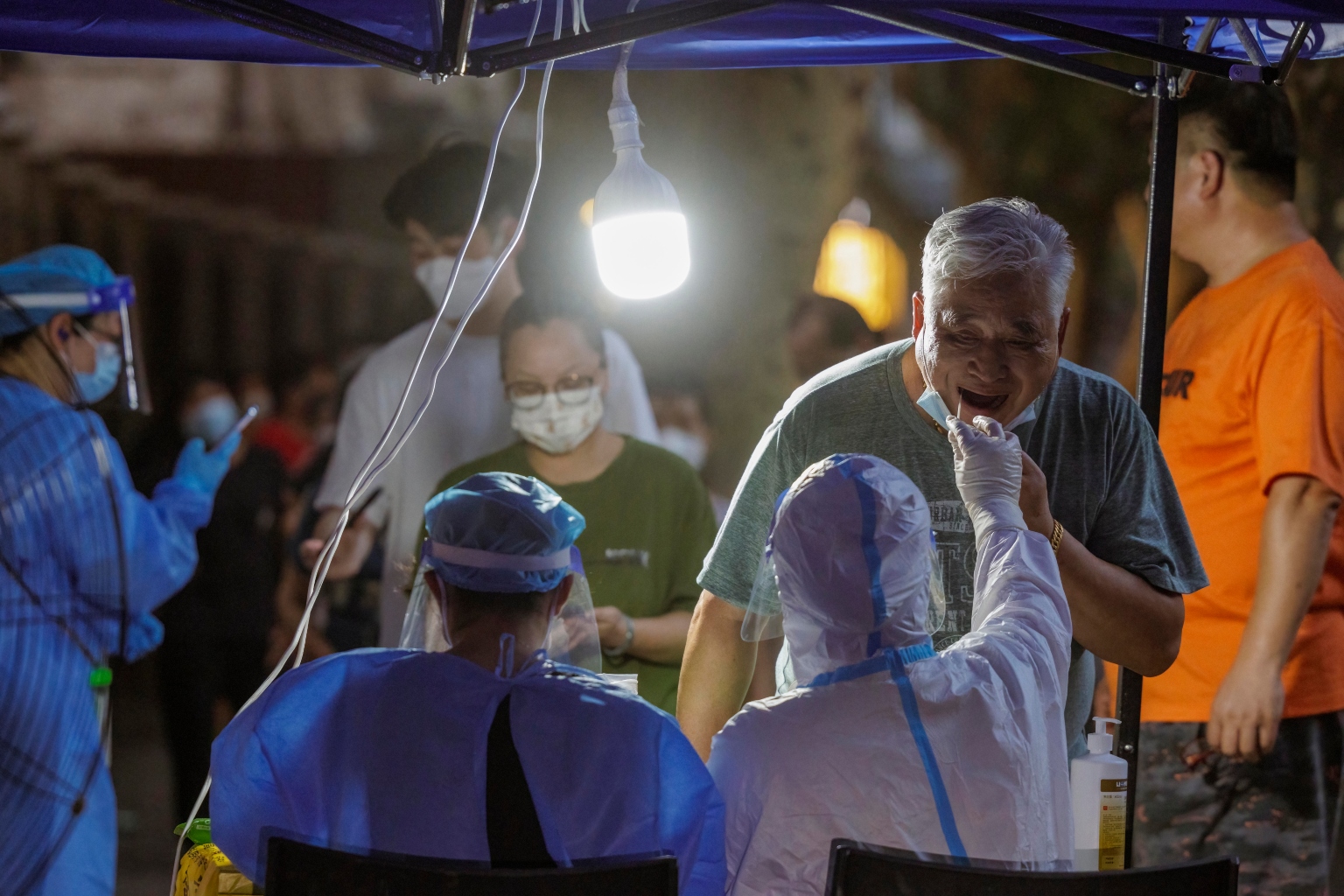Asia stepping up fight against more infectious Covid-19 variants
Sign up now: Get insights on Asia's fast-moving developments

In China, the number of new infections also continued to climb as outbreaks in some regions widened.
PHOTO: EPA-EFE
SINGAPORE - Governments across Asia are doubling down on efforts to protect their populations from the newer and more infectious strains of Covid-19 that have caused cases to surge in recent days.
South Korea on Sunday (July 17) said infection numbers on Saturday doubled from a week ago, largely due to the highly contagious BA.5 Omicron sub-variant and waning immunity among its population. Data from the Korea Disease Control and Prevention Agency shows the daily Covid-19 cases during the 24 hours of Saturday was 40,342.
Health experts anticipated daily infection numbers could increase more than the government expected, given the current pace of the spread. The discovery of a newer strain of Omicron, BA.2.75, also known as "centaurus", was also posing a threat.
Although daily cases are on the rise, the number of critically ill patients and deaths remains relatively low. Nevertheless, concerns are mounting as the new Omicron wave is expected to spread faster in the following weeks.
The South Korean government is expected to expand from today booster shots to adults aged 50 and above to prevent severe cases and deaths.
Case numbers are rising elsewhere in Asia as well. In Japan, the number of infections hit an all-time high of more than 108,000 as at Saturday evening, according to a Yomiuri Shimbun tally. That figure surpassed the previous record-high of 104,202 on Feb 5.
Further afield in South Asia, India recorded 20,528 new cases over the past 24 hours, the highest since Feb 20, according to data compiled and reported by Reuters on Sunday.
Health ministry data showed the Covid-19 death toll at 525,709, with 49 deaths overnight.
Also on Sunday, India hit a vaccination milestone when it reported that two billion doses had been administered, with booster shots underway for all adults. The federal government has been accelerating its booster campaign to avert the spread of infections, which are edging higher in the eastern states of Assam, West Bengal, and Karnataka in the south.
In China, the number of new infections also continued to climb as outbreaks in some regions widened. The country reported 580 local cases on Saturday, according to the National Health Commission. It was the highest figure since May 23, and most were discovered in the Guangxi region and Gansu province.
In the financial hub Shanghai, the Covid-19 situation remained "relatively severe", with pressures both from a rebound in local cases and imported ones, Mr Zhao Dandan, deputy head of the city's health bureau, said on Saturday. The city reported 26 new local Covid-19 cases on Saturday, the local government said on its official WeChat channel on Sunday.
The Chinese capital Beijing reported another day of no new infections. Further south in Macau, another working week of partial lockdown is expected after the city extended the closure of its casinos and non-essential businesses to try and eradicate its worst coronavirus outbreak yet.
In Thailand, the Public Health Ministry has called an urgent meeting with Bangkok's governor today to prepare measures for a new wave of Covid-19 in the capital.
The ministry's Permanent Secretary Kiattiphum Wongrajit said Bangkok hospitals were now admitting more than 1,000 new Covid-19 patients per day, so preparations for a possible new wave were necessary. Bangkok faces heightened risk of Covid-19 surges because it has a large population that travels a lot and is socially active, Dr Kiattiphum warned.
Covid-19 patients currently occupy only 13 per cent of hospital beds nationwide, but that rate has risen to 42 per cent in Bangkok.


